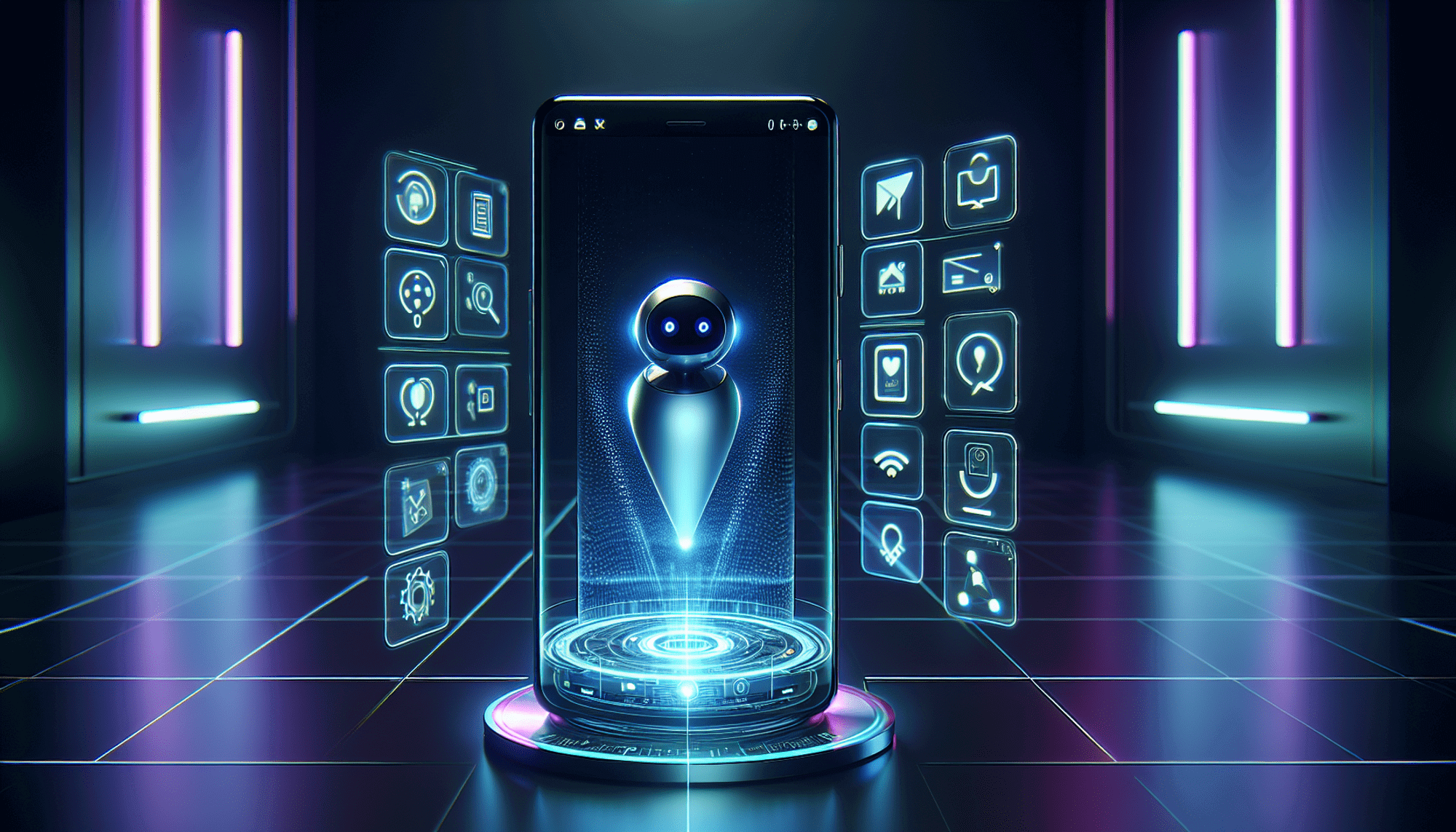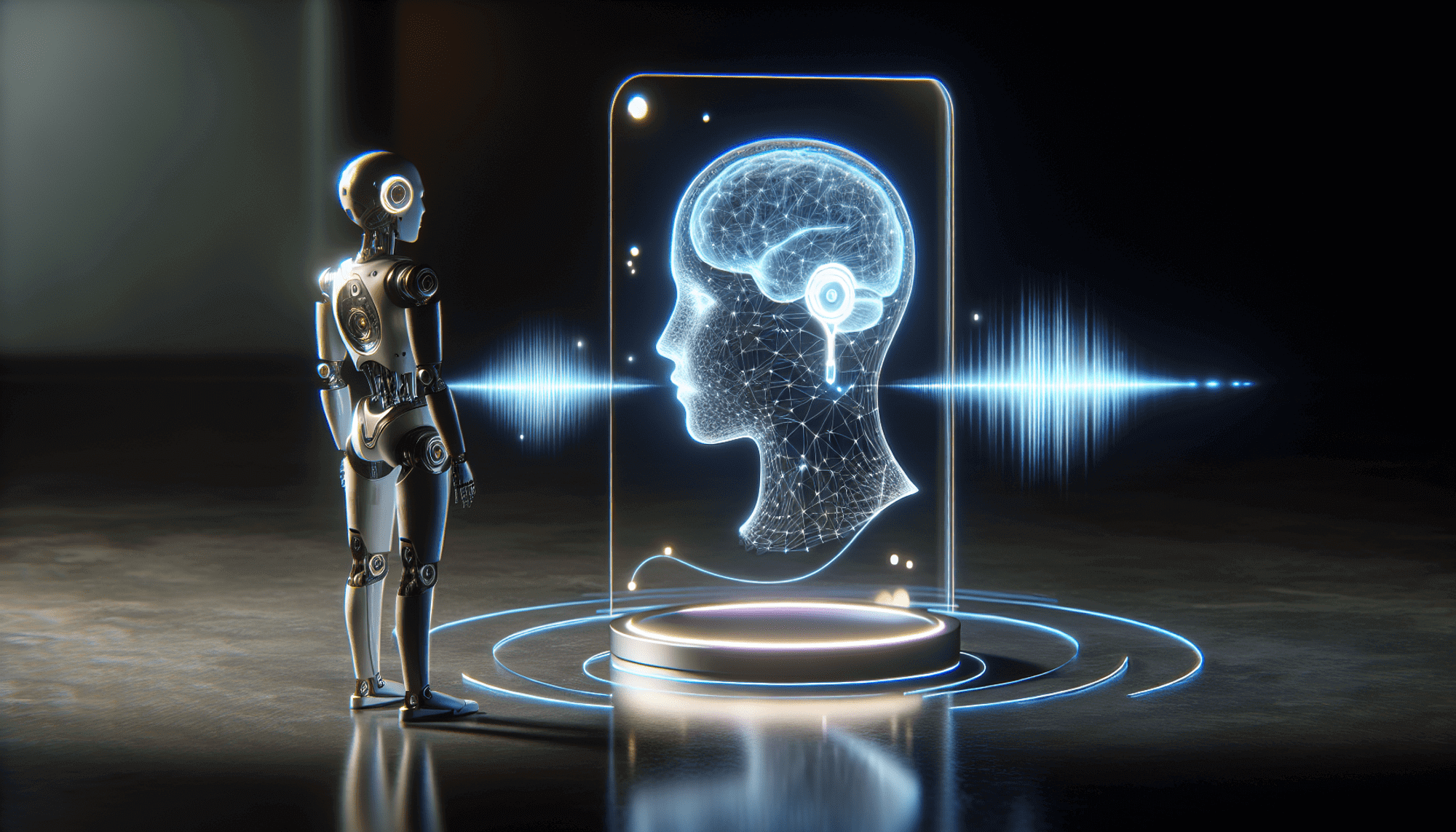






Table of Content:
Talk to an AI: The Future of Conversations

In recent years, Artificial Intelligence (AI) has made significant advancements in various fields, revolutionizing the way we live and work. One area where AI is poised to make a profound impact is in conversations.
The ability to have natural and meaningful dialogues with AI systems has the potential to reshape how we communicate and interact in the future.
Understanding Artificial Intelligence
Before delving into the role of AI in conversations, it's essential to have a clear understanding of what AI actually is. In simple terms, AI refers to the development of computer systems capable of performing tasks that typically require human intelligence.
Artificial Intelligence, often abbreviated as AI, is a fascinating field that has captured the imagination of scientists, researchers, and the general public alike. It encompasses the creation of intelligent machines that can analyze data, learn from it, and make decisions or take actions based on that information. These machines are designed to mimic human cognitive abilities, such as problem-solving, learning, and language processing.
Defining AI in Simple Terms
At its core, AI involves the creation of intelligent machines that can analyze data, learn from it, and make decisions or take actions based on that information. These machines are designed to mimic human cognitive abilities, such as problem-solving, learning, and language processing.
Imagine a world where machines can understand and interpret complex information, just like humans do. AI makes this vision a reality by enabling computers to process and comprehend data in ways that were once thought to be exclusive to human beings. From self-driving cars to virtual personal assistants, AI has become an integral part of our daily lives.
The Evolution of AI Over the Years
The concept of AI has been around for decades, but it is only in recent years that significant breakthroughs have occurred. With advancements in computing power and algorithms, AI has shifted from being a science fiction dream to a reality.
Early pioneers in the field of AI laid the foundation for what we see today. From Alan Turing's groundbreaking work on the concept of a "universal machine" to John McCarthy's development of the programming language LISP, these visionaries paved the way for the future of AI.
Over the years, the field of AI has witnessed remarkable progress in diverse areas, including natural language processing, computer vision, and machine learning. Natural language processing allows machines to understand and respond to human language, while computer vision enables them to interpret visual information. Machine learning, on the other hand, empowers AI systems to learn from data and improve their performance over time.
Thanks to these advancements, AI has become increasingly sophisticated and capable of engaging in conversations with humans. Chatbots and virtual assistants have become prevalent, providing users with personalized and interactive experiences. These AI systems can understand natural language, answer questions, and even hold meaningful conversations.
As AI continues to evolve, researchers and developers are constantly pushing the boundaries of what is possible. The future holds exciting prospects for AI, with potential applications in healthcare, finance, education, and many other fields. The journey of AI has just begun, and it promises to revolutionize the way we live, work, and interact with technology.
The Role of AI in Conversations
AI is transforming the way we communicate on a daily basis. From voice assistants like Siri and Alexa to chatbots on websites, AI-powered systems are becoming an integral part of our conversations.
Artificial Intelligence (AI) has come a long way in recent years, and its impact on communication cannot be overstated. With advancements in natural language processing and machine learning algorithms, AI is now able to understand and respond to human language in a way that was once thought to be the exclusive domain of humans.
One of the most common applications of AI in everyday communication is through voice assistants. These virtual assistants, such as Siri and Alexa, have become household names, allowing users to perform a wide range of tasks simply by speaking. Whether it's setting reminders, playing music, or answering general knowledge questions, these AI-powered voice assistants have made our lives easier and more convenient.
AI in Everyday Communication
Today, AI is seamlessly integrated into our lives, enabling us to communicate effortlessly. Voice assistants, such as those found in smartphones and smart speakers, allow us to ask questions, set reminders, and obtain information simply by speaking.
But AI's impact on communication goes beyond just voice assistants. Text-based communication has also been revolutionized by AI-powered systems. Chatbots, for example, are commonly used by businesses to provide instant customer support. These AI-powered bots can understand queries and provide relevant information or assistance efficiently.
Imagine visiting a website and having a chatbot pop up, ready to assist you with any questions or concerns you may have. These chatbots can handle a wide range of inquiries, from product information to troubleshooting guides. They can even handle complex interactions, such as processing orders or scheduling appointments. With AI, businesses can provide round-the-clock support, ensuring that customers are always taken care of.
AI-powered translation tools are also making it easier for people to communicate across language barriers. These tools can instantly translate text or speech from one language to another, allowing individuals to have meaningful conversations even if they don't speak the same language. This has opened up new opportunities for global collaboration and understanding.
The Impact of AI on Business Communication
In the business world, AI is revolutionizing communication processes. AI-powered chatbots and virtual assistants are transforming customer service, reducing response times, and improving overall customer satisfaction.
Customer service is a critical aspect of any business, and AI is helping companies provide better support to their customers. With AI-powered chatbots, businesses can handle a large volume of customer inquiries simultaneously, ensuring that no customer is left waiting for a response. These chatbots can also learn from previous interactions, allowing them to provide more personalized and accurate responses over time.
Moreover, AI systems can analyze vast amounts of data to provide valuable insights for decision-making processes. From data-driven marketing campaigns to personalized recommendations, AI is helping businesses connect with their customers on a deeper level. By analyzing customer behavior and preferences, AI can help businesses tailor their communication strategies to better meet the needs and expectations of their target audience.
AI is also being used to improve internal communication within organizations. Virtual assistants can help employees schedule meetings, manage their calendars, and even provide real-time updates on important tasks or projects. This not only saves time and improves productivity but also allows employees to focus on more strategic and creative aspects of their work.
In conclusion, AI is playing an increasingly important role in our conversations, both in our personal lives and in the business world. From voice assistants that make our lives easier to chatbots that provide instant support, AI-powered systems are transforming the way we communicate. As AI continues to advance, we can expect even more exciting developments in the field of communication.
The Mechanics of AI Conversations
Behind the scenes, AI conversations involve sophisticated technology and algorithms that enable machines to understand and respond to human speech. Understanding how AI processes human language is essential in grasping its potential and limitations.
How AI Understands Human Speech
AI systems use a combination of techniques, including natural language processing (NLP) and machine learning, to understand human speech. NLP algorithms analyze the structure and meaning of words and sentences, enabling machines to comprehend the context in which they are used.
By leveraging large amounts of training data, AI systems can learn patterns and correlations between words, allowing them to interpret and understand the intent behind human speech.
The Process of AI Response Generation
Once an AI system has understood a user's query or input, it generates a response. This response is based on the knowledge acquired from training data, as well as any real-time information it has access to.
The response generation process involves a combination of rule-based approaches and machine learning techniques. AI systems are trained to generate contextually appropriate and accurate responses, ensuring that the conversation remains meaningful and coherent.
The Advantages of AI Conversations
The integration of AI into conversations brings several advantages that can enhance our communication experiences.
Efficiency and Speed in Communication
One of the most significant advantages of AI conversations is the ability to quickly and efficiently obtain information or assistance. AI-powered systems can process and respond to queries in real-time, eliminating the need to wait for human intervention.
Moreover, AI is constantly learning and improving, meaning that conversational experiences will become even faster and more efficient over time.
Overcoming Language Barriers with AI
In a globalized world, language barriers can hinder effective communication. AI-powered translation and interpretation services are breaking down these barriers by providing real-time language translation.
Whether in business negotiations, travel, or everyday conversations, AI can bridge the gap between languages, enabling people from different cultures to communicate and understand each other better.
The Challenges and Limitations of AI Conversations
While AI-powered conversations hold immense promise, there are also challenges and limitations that need to be addressed.
Dealing with Complex Human Emotions
One of the significant challenges in AI conversations is the ability to understand and respond to complex human emotions accurately. While AI systems can detect sentiment to some extent, truly empathizing and providing appropriate emotional responses remains a challenge.
Developing AI systems that can account for human emotions and provide nuanced and empathetic responses is an ongoing area of research and development.
The Issue of Privacy and Security
AI conversations involve personal data, which raises concerns regarding privacy and security. Safeguarding user information and ensuring its responsible use are crucial to maintaining trust in AI systems.
Stricter regulations and ethical guidelines are necessary to protect user privacy and ensure that AI conversations contribute positively to society without compromising personal information.
In conclusion, AI has the potential to revolutionize conversations and reshape how we communicate. With advancements in natural language processing, machine learning, and other AI technologies, the future holds exciting possibilities for AI-powered conversations. However, it is crucial to address the associated challenges and limitations to ensure that AI conversations are ethical, secure, and provide meaningful interactions. The future of conversations is undoubtedly heading toward a more intelligent and interconnected world.










